Recognizing 9 Early Warning Signs Of Depression
RECOGNIZING 9 EARLY WARNING SIGNS OF DEPRESSION (ISSUE 144) SEPTEMBER 2, 2014
By Diane Gold
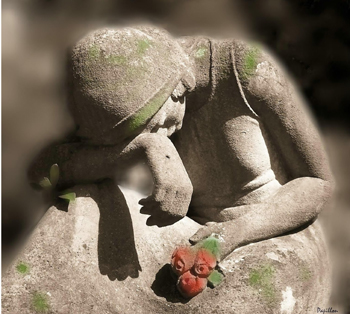 Recognizing 9 early warning signs of depression may sound like a thoughtless, insensitive question, uttered by someone who does not understand or is not experiencing depression. Let’s just say immediately that it takes extreme courage and focus to see ourselves, in general, and to see what is happening to us, in specific, while it is happening.
Recognizing 9 early warning signs of depression may sound like a thoughtless, insensitive question, uttered by someone who does not understand or is not experiencing depression. Let’s just say immediately that it takes extreme courage and focus to see ourselves, in general, and to see what is happening to us, in specific, while it is happening.
The reason it is monumentally difficult to see early signs of depression is because the small changes in our behavior that started out as subtle itches and repetitions of certain behaviors over and over again are now normal every day events. Once behaviors become habitual, meaning they are second nature, it takes pure focus and understanding to see and the will power of a saint (which we all have) to do something to replace it.
THE HABIT CYCLE
When we get a cue or urge, it triggers a behavior. When we execute the behavior, this leads to some sort of comfort or reward, negative or positive. When we repeat this cycle over and over, we develop a habit, which gets more ingrained with time.
According to Deepak Chopra, MD and spiritual author,
“Once it [a behavior] turns into a habit, depressed people no longer need an outside trigger.”
What this means is that, when depressed, we don’t have to have an outside event like a car accident, a bad mark on our exam or a relationship breakup to trigger behavior that makes us depressed. We are already there. And this reality is not exclusive to depression.
PERSPECTIVE
 When we are in a depression, we are not looking at it because we are busy experiencing it. We can think of living in a valley (a depression in the land) in much the same way. We are not looking at our lives from the perspective of mountain dwellers since we don’t live in the upland. Our perspective is from the point where we are, living in the lowlands, the valley.
When we are in a depression, we are not looking at it because we are busy experiencing it. We can think of living in a valley (a depression in the land) in much the same way. We are not looking at our lives from the perspective of mountain dwellers since we don’t live in the upland. Our perspective is from the point where we are, living in the lowlands, the valley.
When it comes to living with depression, people who have experienced it know how it feels. And, in most cases, depression did not appear immediately. And that’s what this article is about: noticing the ever so small changes that contribute on a daily basis to what results as depression.
So, I ask each of us to be diligent. Many of us will say,
“Oh, I am fine. I could never have such a problem,”
or
“Don’t worry. My friend is fine. She’s just going through something right now.”
The truth is we are all capable of great sadness. When something happens, we react. Because feelings are subjective, there is no measure for what emotional reaction is right or wrong. The measure comes from whether we can adjust and bounce back and live well.
THE SIGNS
1) SOCIAL WITHDRAWAL
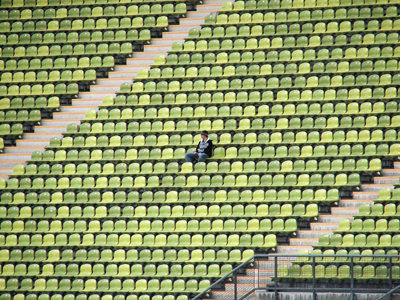 Little by little, we might see that we are spending more time at home, missing a little work here and there, having difficulty getting dressed to go out to socialize, going to lonely places. As with all actions, when we repeat them, they become more comfortable to do again. Kind of like tying a shoe or brushing our teeth.
Little by little, we might see that we are spending more time at home, missing a little work here and there, having difficulty getting dressed to go out to socialize, going to lonely places. As with all actions, when we repeat them, they become more comfortable to do again. Kind of like tying a shoe or brushing our teeth.
2) NOT LIKING OURSELVES
If we find that we are continually deriding ourselves, blaming ourselves for situations that exist in our minds or in our physical circumstance; it’s time to take notice. This could be a sign.
3) FEELING SAD OR HOPELESS ON A REGULAR BASIS
No matter who we are, we can feel sad, hopeless, listless. We may have a billion dollars and be responsible for philanthropy that is responsible for health giving sanitation to a whole country and still be sad. We may be stuck in a CEO or a janitorial position and feel trapped. We may not make ends meet for our family. We may not make ends meet for our family and then find out we have a life threatening disease. We may win the lottery and get depressed over that occurrence. Although we are all connected as sisters and brothers of humanity, we are all affected in different ways.
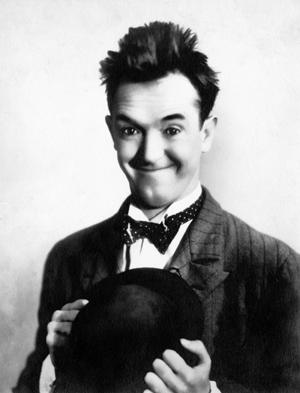 We may be comedians, making everybody laugh – which increases the lifespan of every laugher, and still be sad. It is, after all a great burden, to be the one commissioned to make everyone laugh. Much like the model or the beautiful actor is expected to be as perfect on camera as off, in case a photo is snapped at an off hour; so the comedian is expected to have a 24/7 smile. We may be parents with kids who sometimes hide our feelings so that we don’t burden the family with our doom.
We may be comedians, making everybody laugh – which increases the lifespan of every laugher, and still be sad. It is, after all a great burden, to be the one commissioned to make everyone laugh. Much like the model or the beautiful actor is expected to be as perfect on camera as off, in case a photo is snapped at an off hour; so the comedian is expected to have a 24/7 smile. We may be parents with kids who sometimes hide our feelings so that we don’t burden the family with our doom.
It’s important to notice whether this is happening and tell someone if it might be, even as a joke over beer. This type of feeling creeps in, most of the time. What was one little bad day may progress gradually until it ends up as far away from where we thought we were in no time at all.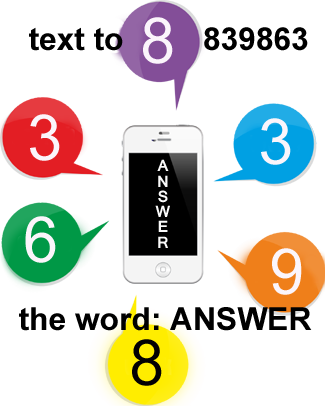
The best crisis phone resource I have seen to date for any crisis is to text the word ANSWER to 839863. It’s text support that responds almost instantaneously. (This resource will be repeated in action steps.)
4) THROUGH 9) CHANGES IN WEIGHT, EATING, SLEEPING, ENERGY, BATHROOM HABITS
Usually when we are depressed, we feel it. However, it can sneak up by body changes. Our weight, eating, sleeping, energy, bathroom habits may change. These, alone, signal any number of things. Together, with any of the other signs, may be the early warning signs of depression we are referencing.
CONCLUSION
The more we know ourselves, the more we will be able to recognize the early warning signs is a false statement. Noticing has nothing to do with how high we have elevated ourselves. The signs are so subtle that the result may hit us like a ton of bricks.
 Think of a one-inch square made up of 72 red squares, kind of like a crossword puzzle. And every day, for the next 72 days, one of those red squares turns light red. All of a sudden, in 72 days, the entire square is light red, and we may not have noticed it. That’s the subtle change.
Think of a one-inch square made up of 72 red squares, kind of like a crossword puzzle. And every day, for the next 72 days, one of those red squares turns light red. All of a sudden, in 72 days, the entire square is light red, and we may not have noticed it. That’s the subtle change.
It is the responsibility of all of us to watch out for these signs in our co-workers, our family, our friends. Of course, we can work to see them in ourselves, but we may not want to see them, we may not feel it’s important to see them because we aren’t going to share them with anyone anyway or we may figure we’ll go to sleep today and get back to recognizing tomorrow.
ACTION STEPS
Here are a set of action steps that may be of some help, even if we read them once.
1) TEXTING
Know that you can text a number and get a response: dial ANSWER to 839863. And, if you forget 839863, it’s TEXTME.
I am thankful this exists and can service anyone with a cell phone in the United States, free of charge.
2) BEING WATCHFUL FOR OTHERS
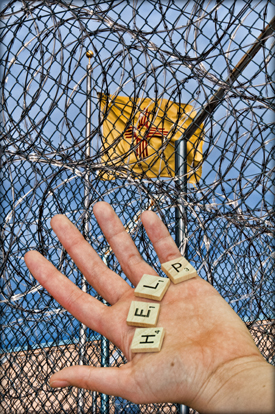 Since most of us will not reach out when we are in dire straits, because we are too depressed to do so, decide to be on the lookout on behalf of others. All of us have the responsibility.
Since most of us will not reach out when we are in dire straits, because we are too depressed to do so, decide to be on the lookout on behalf of others. All of us have the responsibility.
3) RATE YOUR HAPPINESS LEVEL COMPARED WITH THE WEEK BEFORE -1 TO 10
Even if it’s through a social media site on which you really don’t know anyone personally, express how you feel on a scale of 1 to 10, once a week. If you don’t use computers or phones, give yourself a rating and tell it to someone. This is a protective layer so that if the number keeps dropping in your own mind, you will know something is up.
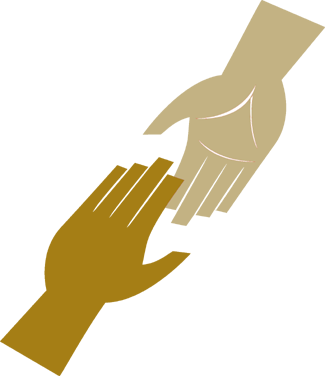 4) RUN TO THE LOCAL STORE OR CAFE TO HAVE HUMAN CONTACT
4) RUN TO THE LOCAL STORE OR CAFE TO HAVE HUMAN CONTACT
Being around others, just having human contact, can change our perspective drastically. It can help us start to heal, or it can put us into a tailspin, depending how close we are to that tailspin. More times than not, having 1 or 2 words with a stranger can help us cope.
5) CALL THE LIBRARY
If you really have no one with whom to converse, and you are determined not to go out; call the local library. This seems silly, but talking about a book gets you out of yourself and connecting with a person. This double connection may lead to stepping out in public.
___
This article is dedicated to anyone who suffers from or who has suffered from depression, including Robin Williams. It’s also dedicated to my late ex-, Jaren Levitt, who is in my heart, whom, some said, Robin looked like.
Let us be our sisters’ and brothers’ keepers as well as our own.
![]()
If you wish to share your story, please hit reply in your email program to be contacted.
![]()
FEEDBACK
We value your feedback very much.
Please leave a comment below.
Please LIKE us on the website and at
WarriorsOfWeight on Facebook.
You can also follow us on Twitter: @warriorsoweight.
Thanks.
![]()
DIANE GOLD, PUBLISHER AND AUTHOR
Diane Gold, Founder of Warriors of Weight, Turning Habits Into Health, is a mentor in tai chi, kung fu and meditation, a music, fitness and stress expert, dedicated mom, studying plant-based nutrition, peaceful conflict resolution and habit replacement.
She believes we are connected to each other. She believes we are our sister’s and brother’s keeper. And that it is not righteous to leave them to suffer. She says,
“Depression is subtle, and we may not know it’s creeping in. But, our family might see it; if we have any friends or work associates, they might see it.
“It’s hard to catch it ourselves until it is a full blown depression. But, once it shows up, whether someone told us about it or we are able to see it,; one immediate step can make a difference. I know this sounds callous, but, if we take one of the suggested action steps immediately, we might be able to pull ourselves up.
“If we are in despair and we don’t have the ability to move, hopefully someone else can see it, can guide us or keep an eye out for us. We are not alone. We are part of an entire world. It is true, even if it hurts to think it.
“In our movements throughout our day, maybe we can be a bit more observant. It could save someone else, or we might even save ourselves.
“Finally, let us all take good care of ourselves because we are worth it, even if we don’t feel it!”
![]()

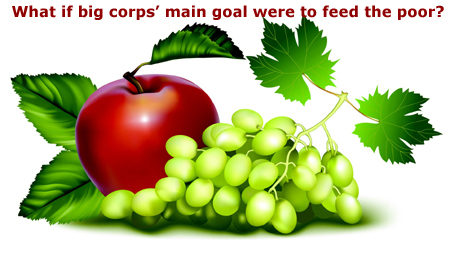 What if Nike’s logo meant food for the poor plus water, clothing, shelter, health care? Or Apple’s or ExxonMobil’s? What if these multinational corporations’
What if Nike’s logo meant food for the poor plus water, clothing, shelter, health care? Or Apple’s or ExxonMobil’s? What if these multinational corporations’
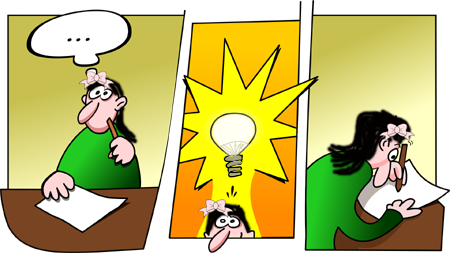 Imagine Apple 2.0 Corporation, worth the $500 billion it is now, focusing its primary attention on helping people get adequate and healthy food, clothing and shelter. And all their artists, designers, technicians and computer scientists were putting full effort into creating the best ways to feed, hydrate, clothe, care for and house everyone adequately.
Imagine Apple 2.0 Corporation, worth the $500 billion it is now, focusing its primary attention on helping people get adequate and healthy food, clothing and shelter. And all their artists, designers, technicians and computer scientists were putting full effort into creating the best ways to feed, hydrate, clothe, care for and house everyone adequately. What does it mean to be civilized? Does it mean being more sophisticated by wearing upscale and fancy clothing while we pillage the environment to get raw materials to manufacture modern comforts OR does it mean living sustainably without taking more than is necessary for community survival while insuring the rebirth of the resources used for survival?
What does it mean to be civilized? Does it mean being more sophisticated by wearing upscale and fancy clothing while we pillage the environment to get raw materials to manufacture modern comforts OR does it mean living sustainably without taking more than is necessary for community survival while insuring the rebirth of the resources used for survival?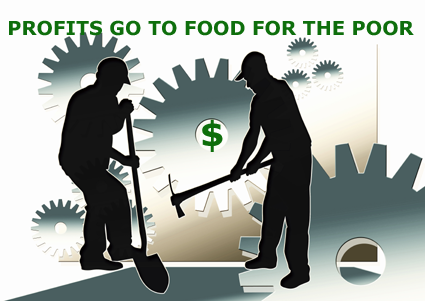
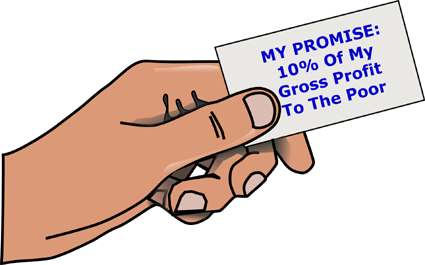 The answer is not as mind boggling as I thought it was. It’s right in front of you and me. It’s tithing, an old English unit meaning one-tenth of something. Much of the developing country manipulation could be monitored, and every corporation that made over one billion one hundred eleven million dollars would be required to give 10% of its gross profit to those in need for food, clothing, shelter, water and health care. The collector of this profit would have to be an independent agent, a non-government, non-profit establishment that published all incoming and outgoing funding to the public.
The answer is not as mind boggling as I thought it was. It’s right in front of you and me. It’s tithing, an old English unit meaning one-tenth of something. Much of the developing country manipulation could be monitored, and every corporation that made over one billion one hundred eleven million dollars would be required to give 10% of its gross profit to those in need for food, clothing, shelter, water and health care. The collector of this profit would have to be an independent agent, a non-government, non-profit establishment that published all incoming and outgoing funding to the public.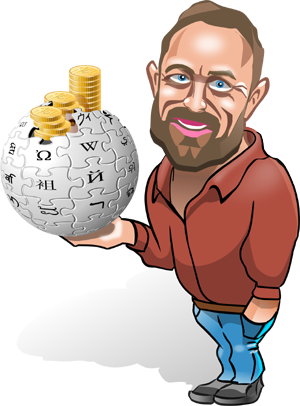
 Profit From Peace is an ideal that has fallen through the cracks in discussions at the university level, in primary and secondary schools, across diplomatic and corporate tables. It’s not really in the back of our minds, yet, either.
Profit From Peace is an ideal that has fallen through the cracks in discussions at the university level, in primary and secondary schools, across diplomatic and corporate tables. It’s not really in the back of our minds, yet, either.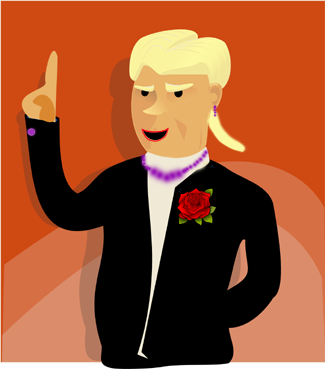 Each candidate would pitch the business plan of her/his created company, including how to finance and manage it. The show would include role playing a board meeting run by the prospective director of the company.
Each candidate would pitch the business plan of her/his created company, including how to finance and manage it. The show would include role playing a board meeting run by the prospective director of the company.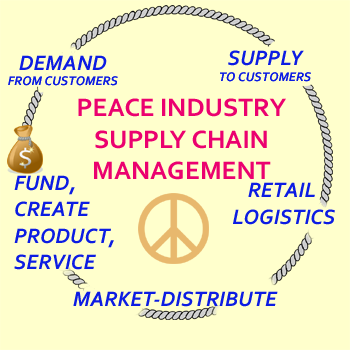 We already know how to make money from war. Military equipment, location and protection technology and gear, air, land and sea vehicles need manufacturing, technological assembly, fuel for transport, human personnel, financing up front to pay for the above, medical costs during and after war. We have mastered this art. Let’s explore another.
We already know how to make money from war. Military equipment, location and protection technology and gear, air, land and sea vehicles need manufacturing, technological assembly, fuel for transport, human personnel, financing up front to pay for the above, medical costs during and after war. We have mastered this art. Let’s explore another.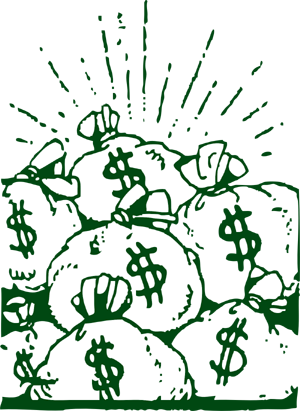 BUSINESS INVESTORS
BUSINESS INVESTORS 1)
1) 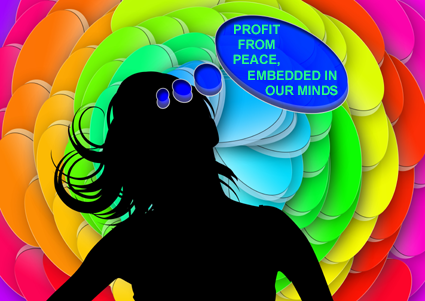 Hopefully, the profit from peace concept is now embedded in our minds. It can only grow as we talk and refine it. If we are consistent, don’t disrespect the profit position of war manufacturers and give them an alternative; we might have embarked upon something that will work.
Hopefully, the profit from peace concept is now embedded in our minds. It can only grow as we talk and refine it. If we are consistent, don’t disrespect the profit position of war manufacturers and give them an alternative; we might have embarked upon something that will work.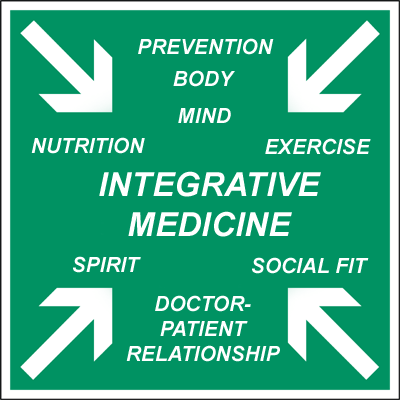 Integrative Medicine is the new buzz phrase that refers to medical doctors’ looking at biology, psychology, exercise, social adjustment, spiritual balance and nutrition to conclude the best way to work together with a patient on her health.
Integrative Medicine is the new buzz phrase that refers to medical doctors’ looking at biology, psychology, exercise, social adjustment, spiritual balance and nutrition to conclude the best way to work together with a patient on her health. Because part of healing has to do with self-expression, integrative medicine includes counseling and discussing what is going on in the life of the patient or how the patient feels. Yes, we pay for the time since we may be billed at the highest tier should we touch upon 5 subjects that ail us instead of 1; but we have the ability to have a full and complete session with an expert. Hallelujah.
Because part of healing has to do with self-expression, integrative medicine includes counseling and discussing what is going on in the life of the patient or how the patient feels. Yes, we pay for the time since we may be billed at the highest tier should we touch upon 5 subjects that ail us instead of 1; but we have the ability to have a full and complete session with an expert. Hallelujah.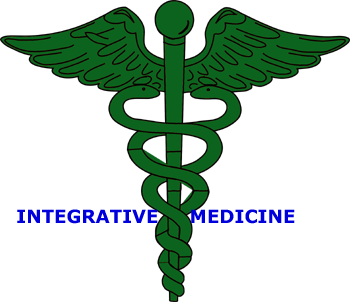 Having been aware that the health care system compartmentalizes each area, many of us have known that the infrastructure of medicine as it has been displayed and taught to us is out of balance and incomplete medicine. We who know what mind/body disciplines can do for health are thrilled to see the continued popularity of integrative medicine.
Having been aware that the health care system compartmentalizes each area, many of us have known that the infrastructure of medicine as it has been displayed and taught to us is out of balance and incomplete medicine. We who know what mind/body disciplines can do for health are thrilled to see the continued popularity of integrative medicine.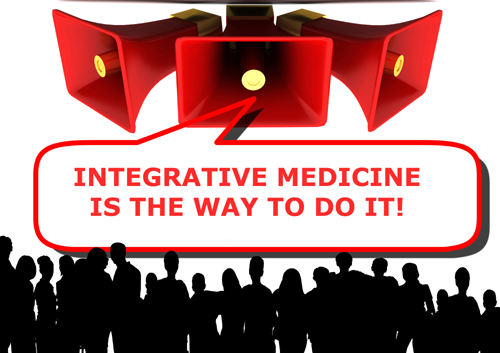

 1. My Workout Is Boring.
1. My Workout Is Boring.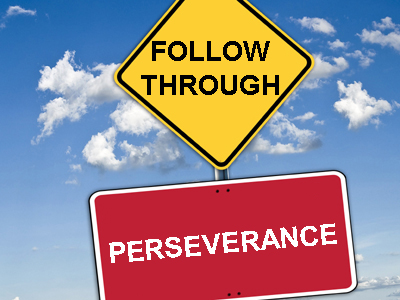 (1) If our activity doesn’t keep our attention, we quit. We usually are not taught the merits of follow through and perseverance, so we quit.
(1) If our activity doesn’t keep our attention, we quit. We usually are not taught the merits of follow through and perseverance, so we quit. The art of tai chi is a system of movement that uses wave-like, circular patterns of moving the body, arms and legs. Its purpose is to connect everything that we do with the body with our mind and our spirit. It’s not a magic potion of movement; what it is is a very slow moving discipline that, because of its slowness, allows the mover to connect the movement to the mind. Its purpose is to teach the mind to act fluidly like the body movements. The physical moves are tools to connect us to ourselves.
The art of tai chi is a system of movement that uses wave-like, circular patterns of moving the body, arms and legs. Its purpose is to connect everything that we do with the body with our mind and our spirit. It’s not a magic potion of movement; what it is is a very slow moving discipline that, because of its slowness, allows the mover to connect the movement to the mind. Its purpose is to teach the mind to act fluidly like the body movements. The physical moves are tools to connect us to ourselves.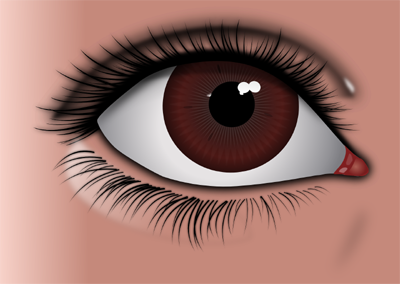 Here’s something to think about. When I am doing tai chi, the speed at which I am moving allows me to focus my attention on my movement. The movement allows me to focus on only 1 thing. This focus allows me to follow each body part, 1 at a time. I can, as well, connect my motion with the heat and the balance of my body, the expansion and compression of my lungs, the flow of my blood, and the space in which my body exists. I am in moving, martial meditation.
Here’s something to think about. When I am doing tai chi, the speed at which I am moving allows me to focus my attention on my movement. The movement allows me to focus on only 1 thing. This focus allows me to follow each body part, 1 at a time. I can, as well, connect my motion with the heat and the balance of my body, the expansion and compression of my lungs, the flow of my blood, and the space in which my body exists. I am in moving, martial meditation. Picture the adventure of a dandelion seed, using the fibers of the dandelion flower to keep it airborn, and it is whisked away by a fluid stream of the wind. The ride is smooth with no sudden movement other than what the airstream provides for it. This fluidity likens it to the journey of tai chi, where we learn to follow the line of movement of one body part from its beginning to its end which leads it into a new beginning of the next body part. This rolling rhythm that is tai chi allows us to translate our wave-like action of our body to our mind, reducing or removing jerky decisions, panic or despair.
Picture the adventure of a dandelion seed, using the fibers of the dandelion flower to keep it airborn, and it is whisked away by a fluid stream of the wind. The ride is smooth with no sudden movement other than what the airstream provides for it. This fluidity likens it to the journey of tai chi, where we learn to follow the line of movement of one body part from its beginning to its end which leads it into a new beginning of the next body part. This rolling rhythm that is tai chi allows us to translate our wave-like action of our body to our mind, reducing or removing jerky decisions, panic or despair.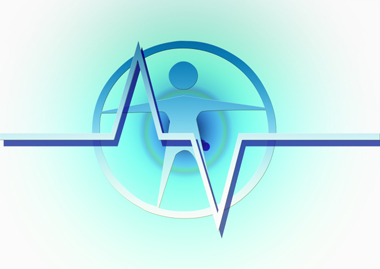 For all the reasons that we don’t burn out when we do tai chi, this old and sophisticated art offers solutions to people with a huge list of physical and emotional issues: memory disorders like Alzheimer’s Disease, muscle disorders, like Parkinson’s Disease, Anxiety Disorder, Chronic Organic Pulmonary Disease (COPD), Post-Traumatic Stress Disorder (PSD), Attention Deficit Hyperactivity Disorder (ADHD), cardiovascular disease, balance disorders, diabetes and more. And it’s a martial art that teaches self-protection, one-pointed focus, stress-free living and how to maximize health.
For all the reasons that we don’t burn out when we do tai chi, this old and sophisticated art offers solutions to people with a huge list of physical and emotional issues: memory disorders like Alzheimer’s Disease, muscle disorders, like Parkinson’s Disease, Anxiety Disorder, Chronic Organic Pulmonary Disease (COPD), Post-Traumatic Stress Disorder (PSD), Attention Deficit Hyperactivity Disorder (ADHD), cardiovascular disease, balance disorders, diabetes and more. And it’s a martial art that teaches self-protection, one-pointed focus, stress-free living and how to maximize health.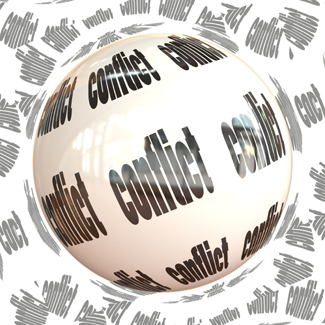 In all sectors that touch upon health care, there are conflicts of interest. We have the habit of ignoring them. In order to do research, we need money, so we sell products. These products may be less than perfect to save money and to make more. In order to live well, some of us may create partnerships and agree to job restrictions we never would have if we didn’t need the money. These are compromises. We all have made one. These are not unethical moves, in themselves. Ignoring the huge conflicts of interest that develop because of them is. Not making this disharmony common knowledge is!
In all sectors that touch upon health care, there are conflicts of interest. We have the habit of ignoring them. In order to do research, we need money, so we sell products. These products may be less than perfect to save money and to make more. In order to live well, some of us may create partnerships and agree to job restrictions we never would have if we didn’t need the money. These are compromises. We all have made one. These are not unethical moves, in themselves. Ignoring the huge conflicts of interest that develop because of them is. Not making this disharmony common knowledge is! Health insurance companies are another sector that creates conflicts of interest. The cost of insurance-reimbursable health care is so high that these companies foster the habit that they are the only way and that they are required. True, I would not want to be without health care as an almost 65-year-old citizen, but I do want to honor these comments from Jon Raymond, founder of Out In The Streets Films, from his article The Sadism Of American Health Care,
Health insurance companies are another sector that creates conflicts of interest. The cost of insurance-reimbursable health care is so high that these companies foster the habit that they are the only way and that they are required. True, I would not want to be without health care as an almost 65-year-old citizen, but I do want to honor these comments from Jon Raymond, founder of Out In The Streets Films, from his article The Sadism Of American Health Care,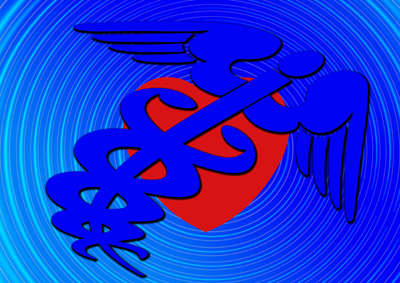 Our doctors may be promoting a drug or treatment protocol so that they receive a bonus or good connection from a drug company or an insurance company. Most doctors will not promote what they don’t believe in; however their discussion of drugs from a company that favors them they give their patients urges other doctors to do the same, benefiting the original prescriber and the drug company. If the drug could have been replaced with exercise or good food, this non-drug strategy gets lost in the shadows.
Our doctors may be promoting a drug or treatment protocol so that they receive a bonus or good connection from a drug company or an insurance company. Most doctors will not promote what they don’t believe in; however their discussion of drugs from a company that favors them they give their patients urges other doctors to do the same, benefiting the original prescriber and the drug company. If the drug could have been replaced with exercise or good food, this non-drug strategy gets lost in the shadows.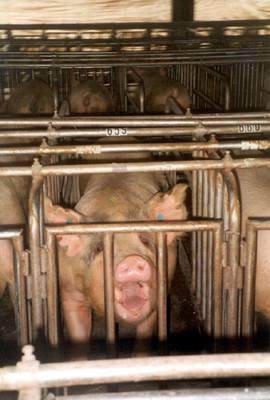 We might also consider the ethics of raising animals for slaughter, or, in the case of dairy cows, shortening their lives by 80% as long as cows who do not get milked by machine on a dairy farm or traumatizing pigs in tiny cages.
We might also consider the ethics of raising animals for slaughter, or, in the case of dairy cows, shortening their lives by 80% as long as cows who do not get milked by machine on a dairy farm or traumatizing pigs in tiny cages.
 Finally, although there are conflicts in finance and natural resource manufacturing, too, we will close with media conflicts. Journalists have to omit some news. They report what their corporate heads allow, which often coincides with the voices of their advertisers.
Finally, although there are conflicts in finance and natural resource manufacturing, too, we will close with media conflicts. Journalists have to omit some news. They report what their corporate heads allow, which often coincides with the voices of their advertisers.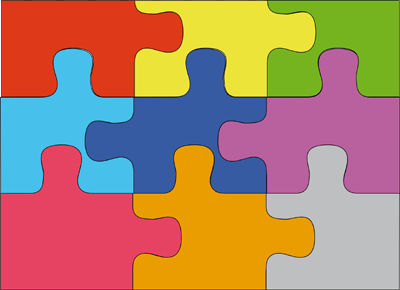 Know the conflicts of interest in health care, and eat well. Consider how funding drives decisions for all of us. Know that all our industries, factory farmers, health insurers, medical personnel and facilities, our research companies, government regulators are run by profit. And all the sectors fit together like a jigsaw puzzle.
Know the conflicts of interest in health care, and eat well. Consider how funding drives decisions for all of us. Know that all our industries, factory farmers, health insurers, medical personnel and facilities, our research companies, government regulators are run by profit. And all the sectors fit together like a jigsaw puzzle.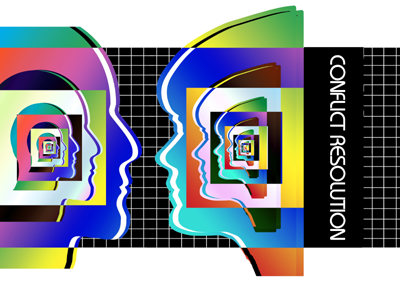
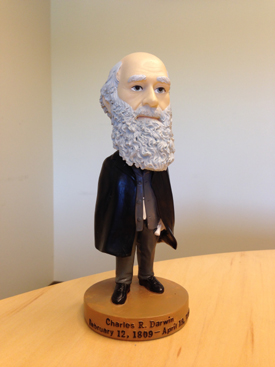 What makes the above quote a great definition is that Charles Darwin alludes to something similar in his Origin of the Species as did his predecessor, Jean-Baptiste Lamarck, 500 years before Darwin. They both arrived at the idea that traits can be passed down generationally even if they are acquired through acquired training of the previous generations. Another way of saying this would be that the offspring of parents who are trained in a certain behavior are born with the behavior and no previous training in the future generations.
What makes the above quote a great definition is that Charles Darwin alludes to something similar in his Origin of the Species as did his predecessor, Jean-Baptiste Lamarck, 500 years before Darwin. They both arrived at the idea that traits can be passed down generationally even if they are acquired through acquired training of the previous generations. Another way of saying this would be that the offspring of parents who are trained in a certain behavior are born with the behavior and no previous training in the future generations.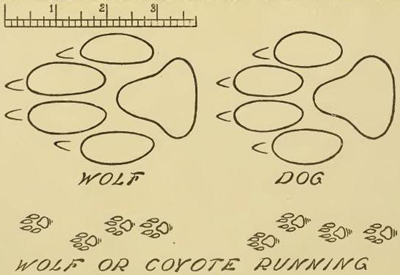 We can look at the domestication of one or two wolf species. The domesticated wolf became the dog, according to James Serpell, professor at University of Pennsylvania’s School of Vet Medicine in his 1995 The Domestic Dog. Through teaching the wolf pup of the wild wolf to be calm, gentle and social with humans; the offspring of the tamed wolf pups began to exhibit the gentler traits at birth, without any training.
We can look at the domestication of one or two wolf species. The domesticated wolf became the dog, according to James Serpell, professor at University of Pennsylvania’s School of Vet Medicine in his 1995 The Domestic Dog. Through teaching the wolf pup of the wild wolf to be calm, gentle and social with humans; the offspring of the tamed wolf pups began to exhibit the gentler traits at birth, without any training.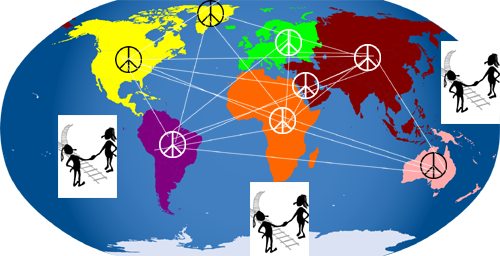 So, the way of our evolution has to do with the training we are given which, if ingrained in us well, can be passed down to our offspring or to their future generations from birth. What could exist is our own domestication, cultivating the habit of peaceful coexistence.
So, the way of our evolution has to do with the training we are given which, if ingrained in us well, can be passed down to our offspring or to their future generations from birth. What could exist is our own domestication, cultivating the habit of peaceful coexistence.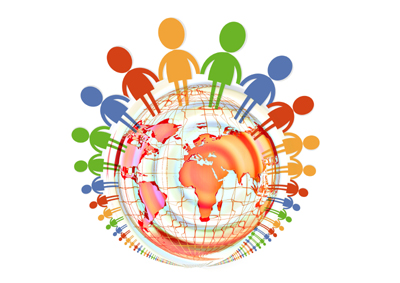 The point here is if we start role playing peaceful solutions to different circumstances when we are young, we will be very experienced at conflict resolution by the time we reach 25 when our voices can help run the world. We will recognize human rights violations and know how to use our voices against them using our peaceful methods. This means we may be interested in letting go of our old ways.
The point here is if we start role playing peaceful solutions to different circumstances when we are young, we will be very experienced at conflict resolution by the time we reach 25 when our voices can help run the world. We will recognize human rights violations and know how to use our voices against them using our peaceful methods. This means we may be interested in letting go of our old ways. Think about what happens when we have unwanted mucous in our body. We have difficulty breathing. This is because our airway is blocked.
Think about what happens when we have unwanted mucous in our body. We have difficulty breathing. This is because our airway is blocked.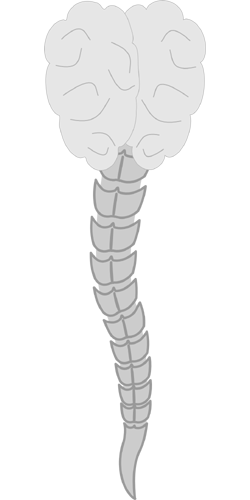 When we keep slouching, we get used to it and it becomes normal. Unless we take a good long look, there are probably 5 times a day we slouch without noticing it: tidying up, cooking, working, driving, sitting on the toilet are some examples. We know that we develop a habit from a cue. The cue is the urge to relax or the urge to rest. What could possibly be wrong with letting the shoulders go while we are cooking? Isn’t this activity supposed to be mellow and fun?
When we keep slouching, we get used to it and it becomes normal. Unless we take a good long look, there are probably 5 times a day we slouch without noticing it: tidying up, cooking, working, driving, sitting on the toilet are some examples. We know that we develop a habit from a cue. The cue is the urge to relax or the urge to rest. What could possibly be wrong with letting the shoulders go while we are cooking? Isn’t this activity supposed to be mellow and fun?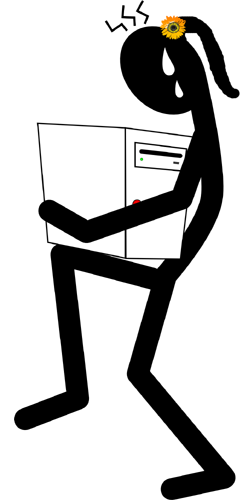 When we look at daily activities that require us to carry weight, we have to use our legs to take the pressure off our backs and our knees. Take vacuuming, sweeping, carrying out the recycling bin. These tasks require us to exert effort. When we bend the knees to engage the legs, we can do the pushing, pulling, carrying without compromising our spine. When an object is fairly bulky or awkward, it’s important to use some type of leverage (bent knees, a wagon, a dolly or a partner to avoid slouching the back during this enterprise.
When we look at daily activities that require us to carry weight, we have to use our legs to take the pressure off our backs and our knees. Take vacuuming, sweeping, carrying out the recycling bin. These tasks require us to exert effort. When we bend the knees to engage the legs, we can do the pushing, pulling, carrying without compromising our spine. When an object is fairly bulky or awkward, it’s important to use some type of leverage (bent knees, a wagon, a dolly or a partner to avoid slouching the back during this enterprise.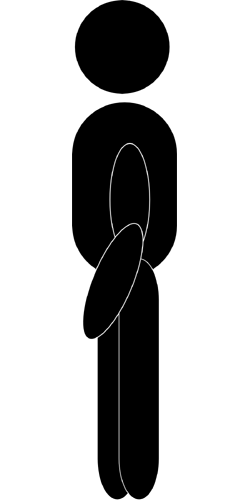 Funny as it may sound, using the abdominal plate to hold the back erect is the easiest way to insure a healthy posture. This would mean this set of muscles has to be strong enough to endure the weight of the undertaking.
Funny as it may sound, using the abdominal plate to hold the back erect is the easiest way to insure a healthy posture. This would mean this set of muscles has to be strong enough to endure the weight of the undertaking. Large-chested women will find this particularly helpful as they have the challenge of not leaning too far back or forward to compensate for the weight of the chest.
Large-chested women will find this particularly helpful as they have the challenge of not leaning too far back or forward to compensate for the weight of the chest.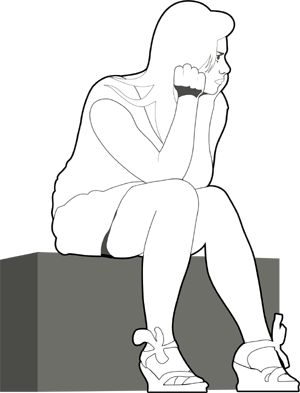 Slouching is insidious. It pops into our lives when we least expect and becomes normal unless we manage and fix it. When we are younger, it doesn’t seem like a big deal, except that the earlier on we make our move, the earlier we will develop the habit of an aligned body.
Slouching is insidious. It pops into our lives when we least expect and becomes normal unless we manage and fix it. When we are younger, it doesn’t seem like a big deal, except that the earlier on we make our move, the earlier we will develop the habit of an aligned body.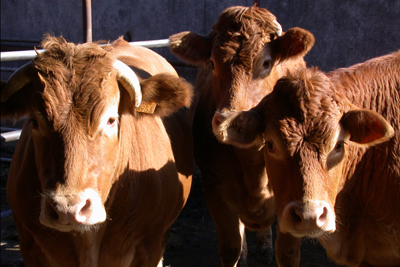 The habit of eating meat is passed down from one generation to another, in most societies. Throughout the years, a symbol of abundance has become the finest steak dinner, so much so that, at one point, the overproduction of uric acid crystals between the joints known as gout, got the nickname “disease of the rich” because wealth often meant increased intake of animal proteins.
The habit of eating meat is passed down from one generation to another, in most societies. Throughout the years, a symbol of abundance has become the finest steak dinner, so much so that, at one point, the overproduction of uric acid crystals between the joints known as gout, got the nickname “disease of the rich” because wealth often meant increased intake of animal proteins.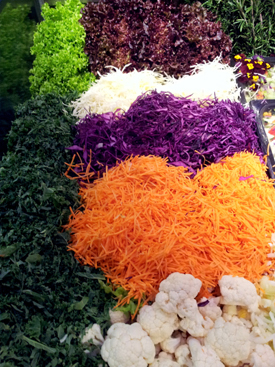 What is now becoming common knowledge, or is such to the Millenial generation and after, is that hunger and thirst could be contained if we increased our plant-based nutrition consumption; we could reduce many chronic diseases if we reduced or removed meat from our diet; our water footprint to farm livestock for food is sending the world economies on a downward spiral of water emergencies; especially in the latest generation, people are questioning whether it is ethical to eat meat (which could includes but is not limited to beef, pork, lamb, chicken, fish, bees).
What is now becoming common knowledge, or is such to the Millenial generation and after, is that hunger and thirst could be contained if we increased our plant-based nutrition consumption; we could reduce many chronic diseases if we reduced or removed meat from our diet; our water footprint to farm livestock for food is sending the world economies on a downward spiral of water emergencies; especially in the latest generation, people are questioning whether it is ethical to eat meat (which could includes but is not limited to beef, pork, lamb, chicken, fish, bees). 3)
3)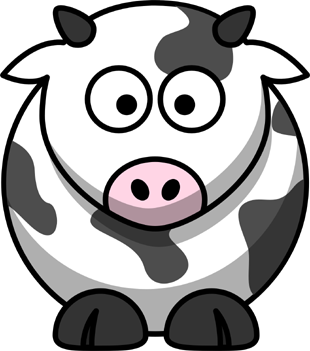 For those not calculating, if antibiotics are used in animal feed, the drug companies get paid for their drugs and farmers get to fatten up their livestock more quickly from the antibiotics so they reduce feeding expense. This translates to a less healthy environment, chemically altered food and reduced health.
For those not calculating, if antibiotics are used in animal feed, the drug companies get paid for their drugs and farmers get to fatten up their livestock more quickly from the antibiotics so they reduce feeding expense. This translates to a less healthy environment, chemically altered food and reduced health.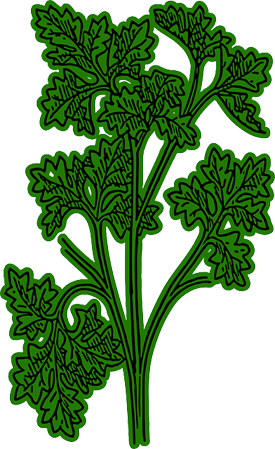
 Instead of blindly consuming food, just because it tastes good to us, we might want to consider the consequences of our actions. Not following in the footsteps of the past generations, we might want to evaluate the newest scientific evidence about food and nutrition. We might choose to realize that the dairy and meet industries have vast sums of money to promote the idea of eating meat or consuming dairy. Big media are friends with big dairy, big meat, big poultry and big pharma. These relationships may be cause for us to do our own research on whether the habit of eating meat needs a complete turnaround in 2014.
Instead of blindly consuming food, just because it tastes good to us, we might want to consider the consequences of our actions. Not following in the footsteps of the past generations, we might want to evaluate the newest scientific evidence about food and nutrition. We might choose to realize that the dairy and meet industries have vast sums of money to promote the idea of eating meat or consuming dairy. Big media are friends with big dairy, big meat, big poultry and big pharma. These relationships may be cause for us to do our own research on whether the habit of eating meat needs a complete turnaround in 2014.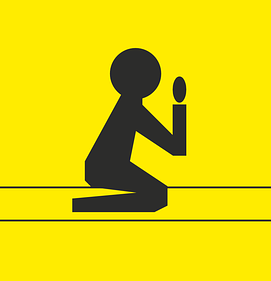 3)
3)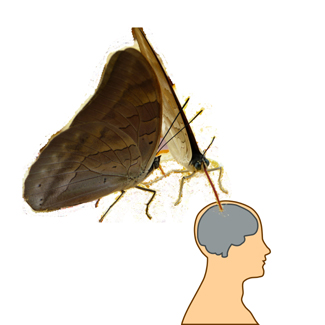
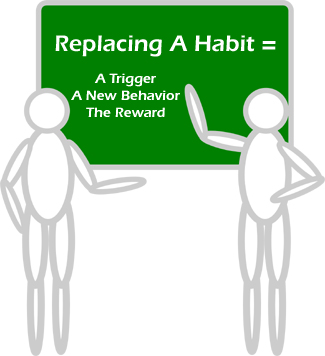 So, here’s this task we have for ourselves. We have a habit, and we want to replace it.
So, here’s this task we have for ourselves. We have a habit, and we want to replace it.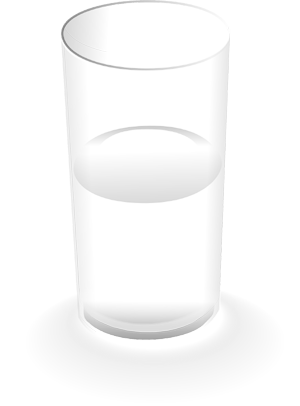 Consider the glass’ being half empty or half full concept. When the glass is full, we think of richness. The empty term, in Western terms, can speak to barrenness, although, in the Eastern way, emptiness is the way to abundance.
Consider the glass’ being half empty or half full concept. When the glass is full, we think of richness. The empty term, in Western terms, can speak to barrenness, although, in the Eastern way, emptiness is the way to abundance.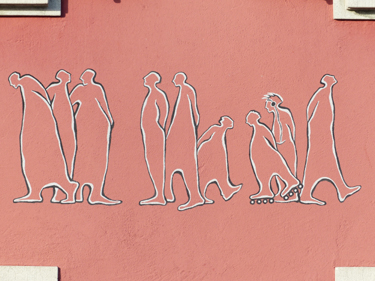 Be careful of the feeling of boredom. It can act as a built-in excuse for doing a certain behavior that is not good for us. We might think that if we had excitement rather than stagnation in our lives, we would not act out the behavior we wanted to change. We might even create the boredom to delude ourselves.
Be careful of the feeling of boredom. It can act as a built-in excuse for doing a certain behavior that is not good for us. We might think that if we had excitement rather than stagnation in our lives, we would not act out the behavior we wanted to change. We might even create the boredom to delude ourselves.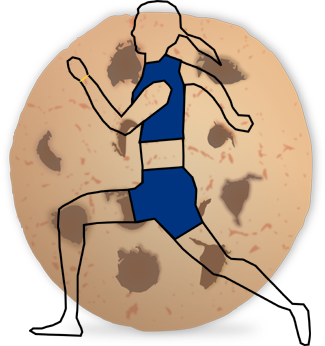 Let’s say we always get the urge to eat dessert. We can change our reaction to this trigger by planning another behavior in its stead, such as going jogging as soon as that urge is felt. This will begin the process of replacement. Repeating this behavior will turn it into a habit. By behaving consistently by jogging and not dessert eating, we will have replaced our old with the new behavior. Although this certainly is quitting acting out the old behavior from the sheer repetition of the act; it’s easier to accomplish by using the concept of “replace.”
Let’s say we always get the urge to eat dessert. We can change our reaction to this trigger by planning another behavior in its stead, such as going jogging as soon as that urge is felt. This will begin the process of replacement. Repeating this behavior will turn it into a habit. By behaving consistently by jogging and not dessert eating, we will have replaced our old with the new behavior. Although this certainly is quitting acting out the old behavior from the sheer repetition of the act; it’s easier to accomplish by using the concept of “replace.”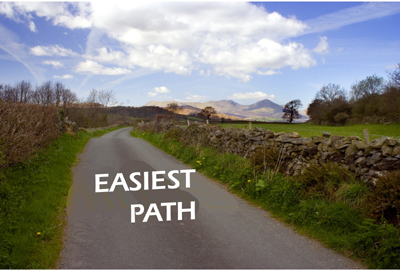 Of course, when we want to do something new in place of some old habit, we want to give ourselves the easiest path to follow. That path involves planning one simple action that will be repeated over and over again. It also requires saying “replace” instead of “quit.”
Of course, when we want to do something new in place of some old habit, we want to give ourselves the easiest path to follow. That path involves planning one simple action that will be repeated over and over again. It also requires saying “replace” instead of “quit.”





